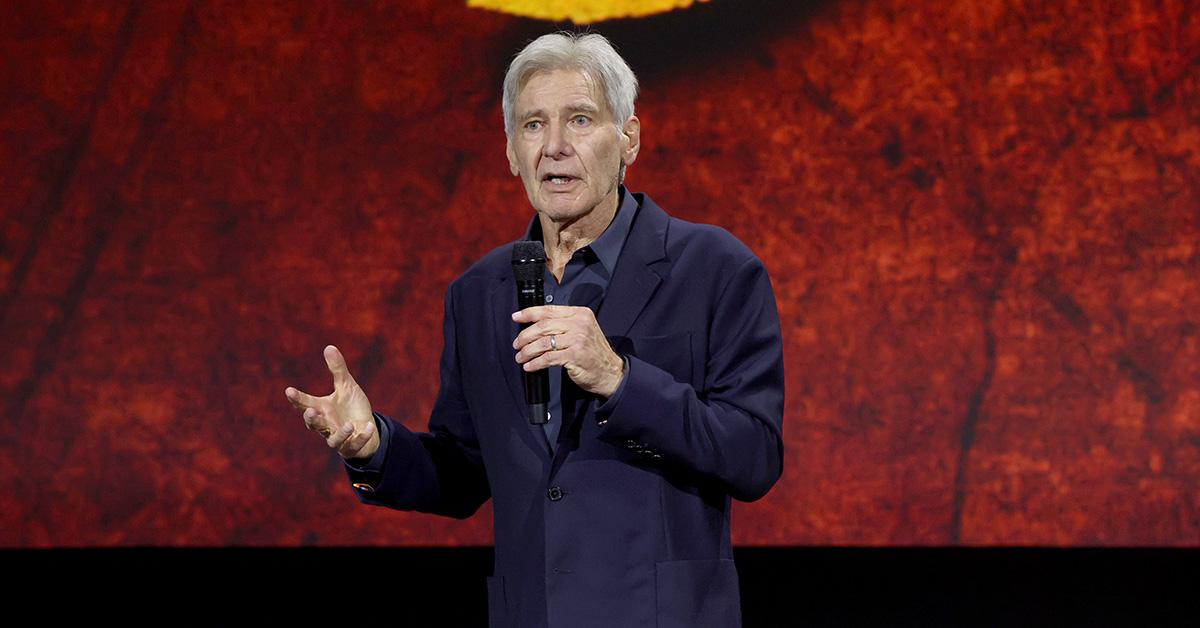Harrison Ford's name has become synonymous with iconic roles in Hollywood, but beyond his acting prowess, the legendary actor has faced personal challenges, including his battle with Parkinson's disease. This revelation has sparked widespread interest in understanding how the condition affects his life and career. In this article, we delve into Harrison Ford's journey, exploring the impact of Parkinson's on his life and how he continues to inspire millions with his resilience.
Parkinson's disease, a neurodegenerative disorder, affects millions globally, and its diagnosis in a public figure like Harrison Ford brings attention to the condition. This article aims to provide a detailed look at his life, including his diagnosis, symptoms, and how he manages the disease while maintaining his status as a Hollywood legend.
Through this exploration, we hope to shed light on the realities of living with Parkinson's disease and highlight the importance of awareness, support, and advancements in treatment options. Let’s begin by understanding the basics of Parkinson's and its implications for someone as influential as Harrison Ford.
Read also:Discover The World Of Entertainment With Hdhub4ukiwi Your Ultimate Streaming Guide
Table of Contents
- Biography of Harrison Ford
- Understanding Parkinson's Disease
- Harrison Ford's Diagnosis
- Symptoms of Parkinson's
- Managing Parkinson's
- Impact on Harrison Ford's Career
- Lifestyle Changes
- Support Systems
- Advancements in Treatment
- Harrison Ford's Legacy
Biography of Harrison Ford
Harrison Ford, born on July 13, 1942, in Chicago, Illinois, is one of the most celebrated actors in the history of cinema. Known for his rugged charm and versatile acting skills, Ford has captivated audiences worldwide with his roles in iconic films such as "Star Wars," "Indiana Jones," and "Blade Runner." His journey from a carpenter to a Hollywood legend is nothing short of inspiring.
Early Life and Career
Growing up in a family of modest means, Harrison Ford initially pursued a career in carpentry before venturing into acting. His breakthrough came in 1977 with the release of "Star Wars," where he portrayed the charismatic Han Solo. This role catapulted him to international fame and set the stage for a storied career spanning decades.
| Full Name | Harrison Ford |
|---|---|
| Date of Birth | July 13, 1942 |
| Place of Birth | Chicago, Illinois, USA |
| Occupation | Actor, Producer |
| Notable Works | Star Wars, Indiana Jones, Blade Runner |
Understanding Parkinson's Disease
Parkinson's disease is a progressive neurological disorder that affects movement. It is caused by the degeneration of dopamine-producing neurons in the brain, leading to symptoms such as tremors, stiffness, and difficulty with balance. Understanding the basics of Parkinson's is crucial to appreciating the challenges faced by those living with the condition.
Symptoms and Diagnosis
Common symptoms of Parkinson's include tremors, bradykinesia (slowness of movement), rigidity, and postural instability. Diagnosis typically involves a thorough evaluation by a neurologist, focusing on the patient's medical history and physical examination.
Harrison Ford's Diagnosis
Harrison Ford's diagnosis with Parkinson's disease came as a shock to fans and admirers worldwide. The revelation was made public in 2016, shedding light on his personal battle with the condition. Despite the diagnosis, Ford has continued to work and inspire others with his determination and resilience.
Initial Reaction and Public Announcement
Upon learning of his diagnosis, Harrison Ford chose to address the issue openly, emphasizing the importance of awareness and support for those affected by Parkinson's. His candidness has helped destigmatize the condition and encourage others to seek help.
Read also:Discover The Hidden Beauty Of Golden Steer Forest Park
Symptoms of Parkinson's
The symptoms of Parkinson's disease vary from person to person, but common signs include:
- Tremors in hands, arms, or legs
- Slowness of movement (bradykinesia)
- Muscle stiffness
- Difficulty with balance and coordination
For Harrison Ford, these symptoms have presented unique challenges, particularly in maintaining his demanding career in the entertainment industry.
Managing Parkinson's
Managing Parkinson's involves a combination of medication, therapy, and lifestyle adjustments. Harrison Ford has been proactive in adopting strategies to mitigate the impact of the disease on his life.
Medication and Therapy
Medications such as levodopa and dopamine agonists are commonly prescribed to manage symptoms. Additionally, physical therapy and occupational therapy play crucial roles in maintaining mobility and independence.
Impact on Harrison Ford's Career
Harrison Ford's career has continued to thrive despite his diagnosis. The actor has taken on roles that challenge his abilities while accommodating his health needs. Films like "Blade Runner 2049" and "The Call of the Wild" showcase his commitment to his craft and his ability to adapt to the demands of Parkinson's.
Adaptations in Filmmaking
To support Ford's continued involvement in the industry, filmmakers have made adjustments to filming schedules and techniques. These adaptations ensure that he can perform at his best while managing the symptoms of Parkinson's.
Lifestyle Changes
Harrison Ford has embraced lifestyle changes to enhance his well-being and manage the effects of Parkinson's. Regular exercise, a balanced diet, and stress management techniques are integral to his daily routine.
Exercise and Nutrition
Engaging in regular physical activity, such as walking and swimming, helps improve mobility and strength. A nutrient-rich diet supports overall health and aids in managing the condition effectively.
Support Systems
Having a strong support system is vital for individuals living with Parkinson's. Harrison Ford has benefited from the love and encouragement of his family, friends, and fans. Additionally, he actively supports organizations dedicated to Parkinson's research and advocacy.
Community and Advocacy
By participating in events and initiatives aimed at raising awareness and funds for Parkinson's research, Ford has become a beacon of hope for millions affected by the disease.
Advancements in Treatment
Recent advancements in Parkinson's treatment offer promising options for patients. Research into stem cell therapy, gene therapy, and new medications provides hope for improved outcomes and better quality of life.
Innovative Therapies
Innovative therapies, such as deep brain stimulation (DBS), have shown significant benefits in managing symptoms. These advancements underscore the importance of continued investment in Parkinson's research.
Harrison Ford's Legacy
Harrison Ford's legacy extends beyond his contributions to cinema. As a Parkinson's advocate, he inspires countless individuals to face adversity with courage and resilience. His journey serves as a testament to the human spirit's capacity to overcome challenges.
In conclusion, Harrison Ford's battle with Parkinson's disease highlights the importance of awareness, support, and advancements in treatment. By sharing his story, Ford continues to make a profound impact on the lives of those affected by the condition. We invite you to leave your thoughts in the comments section, share this article, and explore other insightful content on our site.


